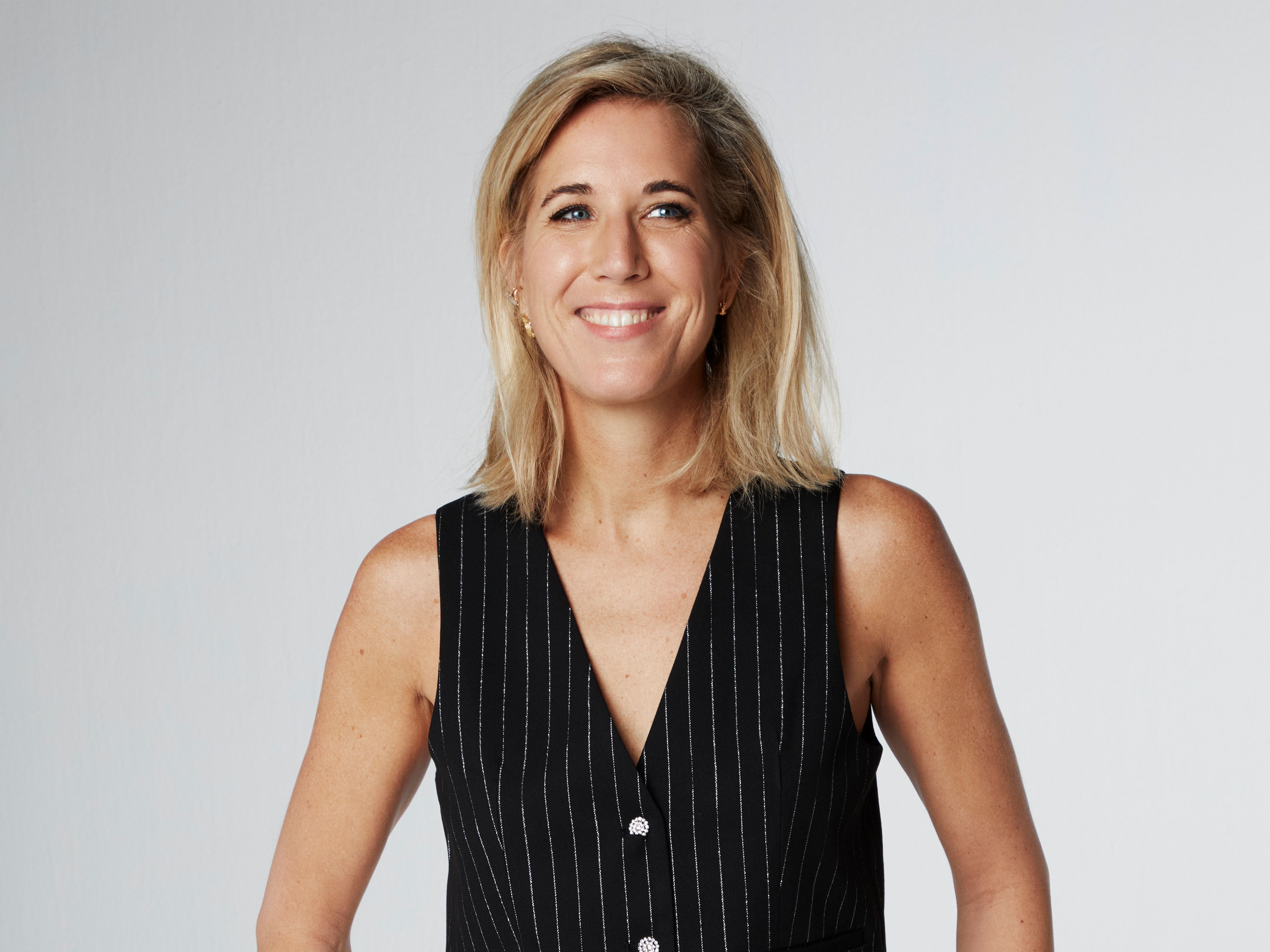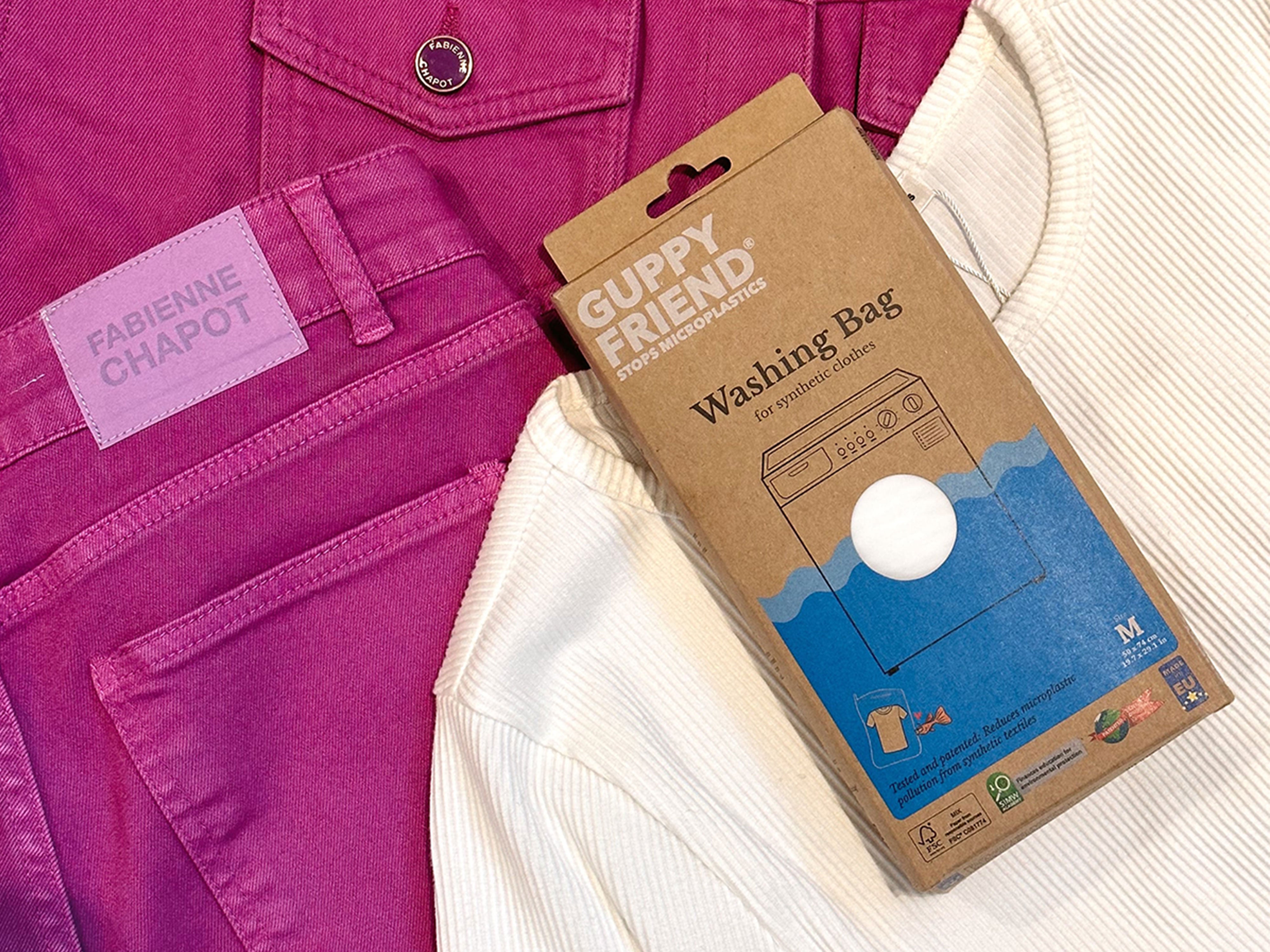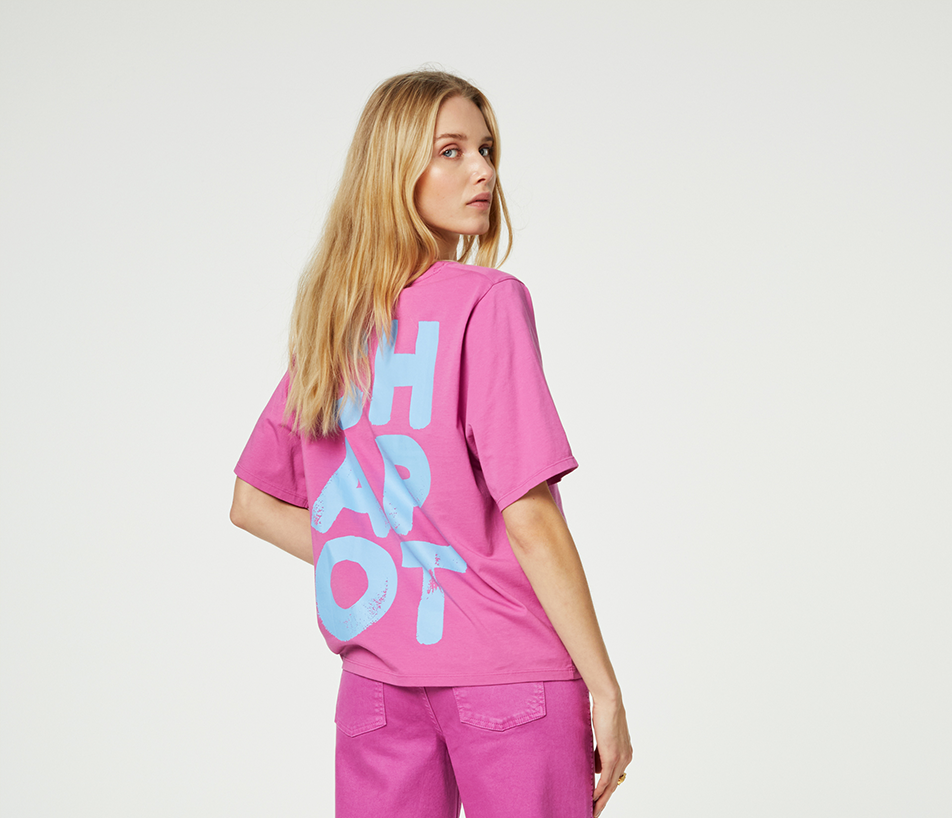
Responsibility at Fabienne Chapot
As a fashion brand in today’s world, we feel a significant responsibility for the impact, actions and choices made at Fabienne Chapot. While our journey of sustainable improvement is never-ending, we’re taking ownership through education, awareness and tangible guidelines.
Across our organisation, our teams are guided by a deep commitment to making a positive difference — from ethical and safe labour practices to sourcing and supply chain transparency, diverse and inclusive policies, trusted partnerships, and footprint reduction. As we help build this stronger fashion ecosystem, we’re dedicated to three core pillars: People, Product and Planet. We believe these are essential in creating an industry that’s not just about beautiful clothing, but makes a real impact that goes beyond appearances.
We also truthfully acknowledge that fashion, as it currently stands, is not a sustainable industry. But through the power of collaboration, creativity and innovation, we can be a catalyst for wider systemic change and foster a more responsible future together. This is about more than mindfulness. We need to take action — and we’re doing it now.
Click here to follow our journey towards becoming a more responsible brand.

People
We’re proud to be a female-founded company, and we feel strongly connected to topics of equality, empathy and empowerment. We strive to foster a culture of feminine power for all women who we work with and for.
Supply chain partners
We value our long-term relationships with our suppliers and strive to ensure transparency, fairness, health and safety for all. We’re constantly working to improve situations for all partners and people, which includes a predominantly female workforce. Amongst other initiatives, that means we:
- Partner with tex.tracer and Amfori BSCI to enable our supply chain management.
- Only onboard audited factories that adhere to a third-party standard for working conditions and environmental management.
- Invest in long-term relationships with our existing suppliers. Some already adhere to our social and environmental standards, and some of them have work to do. In cases when our older suppliers haven’t yet been audited, we’re working together to get them certified and rated as soon as possible.
- Will introduce a supplier Code of Conduct and Restricted Substances List, to be rolled-out by the end of 2023.
- Introduced a Responsible Procurement Policy that defines clear guidelines for supply chain management and responsible material use.
- By the end of 2023, we aim to have mapped and published 100% of our Tier 1 and Tier 2 suppliers and their subcontractors. We also aligned with the Transparency Pledge for supply chain disclosure.
Curious to know more? Click here to see our Impact Report 2022 and commitments for 2023.
Employees
We aim to offer a workplace where everyone feels welcome and valued — regardless of gender, ethnicity, socio-economic background, sexual orientation, age or (dis)ability. We strongly believe that diversity in talent can stimulate dialogue, welcome perspectives and enable growth, and we are committed to continued improvement in this area.
- In 2023, we’re collecting our workplace demographics and leading management & employee workshops on diversity and inclusion topics.
- Our complete DEI action plan is currently being written and will be introduced company-wide in 2023.
Team training and performance
When it comes to responsibility, there’s still a lot to learn, achieve and implement. We’re formulated goals for the brand, our management and our wider teams, and are training employees on responsibility topics. For example, in 2022, our Product Development and Design team joined a workshop on more responsible materials and their certifications.

Planet
Climate anxiety is at an all-time high, and the fashion industry has a colossal impact on our planet’s natural ecosystems. We’re busy mapping how and where we can do better — by measuring our environmental footprint and translating these insights into clear objectives and concrete actions to reduce our impact.
Environmental footprint
Before we can start implementing tangible change, we need to have clear insight into what our footprint looks like in reality. The first step is to track the environmental impact of our own facilities and operations; to do this, we’re collaborating with Root, which is helping us collect data-driven insights in terms of energy, waste, water and (carbon) emissions. We’ve already started with our own operations, and for the future we’re planning to include our products. Once we have concrete data for our footprint, we will translate these insights into objectives and actions to reduce our impact on climate, biodiversity, and the oceans.
Packaging
We’re working to reduce the amount of packing materials and virgin plastics we use, and have already begun to switch to more responsible alternatives.
- Beginning with the FW23 collection, we switched to using recycled plastic polybags to wrap our garments while in transit.
- By the end of 2023, 100% of materials used for packaging must be from a more responsible solution.
- We’ve started working with RePack, a recyclable and reusable packing alternative that customers can use for their online orders.
For more on our efforts to reduce packaging, check out our Packaging Index.
Transport
We’ve updated our collection drop structure to either avoid air transport or minimize it as much as possible. In 2023, we will set CO2 reduction targets and work on more responsible transport and travel policies.

Products
Its no secret that we make products. They’re not just any products — they’re colourful, detailed, high-quality and beautiful pieces full of craftsmanship. But they’re still products, and they hugely define our environmental impact. To immediately improve our footprint, we’re currently focused on material selection and circular business models.
Responsible materials
Across our collections we’re increasing the use of more responsible materials like certified organic, recycled or lower-impact fabrics. In 2022, we sourced 24% of our materials from more responsible solutions, and by the end of 2023, we’ve set the target for this number to reach 40%. Our ultimate goal is to use 100% more responsible materials by 2026.
- Click here to read more about the materials we use.
- Read more about our Fibre Index and what materials are categorized as “more responsible.”
Circularity
By keeping our products in use for as long as possible, we can offer additional benefit to our customers while helping the environment. We’re currently defining what circular business models are most relevant for Fabienne Chapot and exploring how we can take increased responsibility for the maintenance, reuse, repair and recycling of our products. Amongst other initiatives:
- In June 2023 we launched RELOVE, a new circular platform where customers can sell and shop pre-love Fabienne Chapot designs. The quick and easy-to-use concept challenges traditional systems to encourage more conscious shopping.
- In 2023, we will update our care guide for advice on how to keep items in use for longer — from soap to (not) washing, avoiding microplastics, and more.
While trends may come and go, we believe in one eternal fashion statement: clothing brands must all do their part to build a more sustainable future for our planet. We’re committed to our responsibility journey with the fullest confidence and transparency, and we hope you’ll join us in our mission to do better — either by challenging us when needed or supporting us along the way. We look forward to continuing on this path together and seeing what the future will hold.



